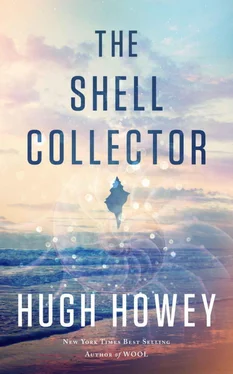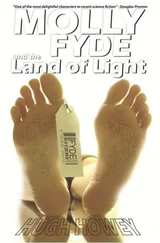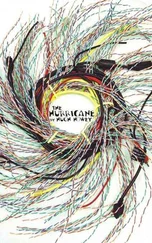I nod. “Are we going snorkeling today?”
“I had planned to. But something may come up this week that I’ll have to attend to. Just in case, I thought we’d skip ahead to diving.”
“I don’t dive,” I tell him. “Never have.”
“Well, today you start. Have you had breakfast?”
I shake my head.
“Eggs? I’ll make some eggs and toast. You take cheese in your eggs?”
“Sure,” I say.
Ness lets himself inside. I stay on the porch and enjoy the feel of the first rays of sunlight slicing through the morning chill. The air feels dry, the day promising to be warm. I glance down at the duffel bags, butterflies in my stomach. Michael tried to get me certified during our honeymoon in the Caymans. I was too scared to go through with it, chickened out on the side of the pool, said I wanted to spend our honeymoon not feeling any pressure. What I felt the rest of the week was the burn of his disappointment.
Funny how that disappointment made me never want to get certified, even after Michael left, and even though most of my friends dive. So much baggage. Heavier than those duffels with their tanks and all that gear. I watch Ness busy himself in the kitchen, whisking eggs, and consider the decision I need to make. Refuse to get in the water once again? Or, for the sake of the story, soldier through?
For the story , I tell myself. Because I’m a professional. Not because I want to. Not because of any pressure or fear of disappointment. I can’t let this be about that. I can’t be thirty-two, making more of this day—any unimportant day—than I made of my honeymoon nine years ago. But I can’t make the same mistakes, either. I can’t let every opportunity pass me by.
After a quick breakfast on the deck, we carry the duffels down to the manmade breakwater and the enclosed bay with the docks and boathouse. I insist on carrying one of the bags. It must weigh fifty pounds once I add my fins, mask, and wetsuit. I let Ness walk ahead of me and thank my Pilates instructor that I’m able to haul the bag without complaint. In fact, I feel strong. Maybe it’s the coffee or the good night of sleep, or the day on the beach, but I feel a power in my limbs. I feel courage and conviction. I’m going to learn to breathe underwater.
Ness leads me across the beach and to the boathouse. At the end of the dock, a metal ramp leads down to a floating platform. The ramp is hinged on both sides so it can move with the tides. There are cleats here for smaller boats to dock up. We set the bags down, and Ness flips a smaller ramp into the water. It’s a beach entry for launching kayaks and the like. I imagine we’ll be walking down this ramp and into the bay.
“A few safety rules,” Ness says. He starts unpacking his bag, and I follow along and do the same with the gear in my bag. “You don’t dive deeper than sixty feet, and you don’t stay that deep for more than ten minutes.”
“How will I know?”
He shows me a fat wristwatch with a black rubber band. “You’ve got one of these in your bag. It shows your depth, how much air you have left, and how long you’ve been diving. I’ll teach you how to use it. Don’t worry, it’s simple.”
“Sixty feet. Ten minutes,” I repeat. I really don’t want to die. I don’t want this story to turn into an obituary. My heart is racing, and it occurs to me that I’m placing my life in the hands of a man I barely trust.
“The most important thing is not to be nervous,” he says, like he can read my mind. “If you’re nervous, you’ll breathe heavy, and you’ll go through your tank in no time. Stay calm and breathe deep, nice and slow, and you’ll be able to enjoy the dive longer.”
I nod. This feels a lot like a piece I wrote years ago, which got me into surfing. I was terrified at first, but I eventually found my footing. The root of a good interview is to throw yourself into someone else’s world with wild abandon. Seek new and scary things. It occurs to me that I could’ve been a better spouse if I’d approached my marriage the way I tackle my work.
Inside the dive bag, I find a black steel tank. The one in Ness’s bag is bright pink. I like that he doesn’t ask to switch, just begins showing me how to hook up what he calls the first stage of the regulator to the tank. He then teaches me how to check the small rubber ring on the tank, make sure there’s no sand or debris there, how to crack the main valve and listen to the hiss of air, and how to blow out any water that might be in the valve. We then begin to hook up the tangle of hoses to the tanks.
“Mine feels loose,” I say. Everything is a worry. A possible danger.
“That’s good. You want it a little loose. It’ll tighten when you open the tank. The air will blow that rubber gasket out.”
That doesn’t sound like a good thing, but I crack the valve, and sure enough, the regulator stiffens where it’s attached to the top of the tank. Ness shows me how to test the air flow from what he calls the “second stage” or “regulator.” I press the button, and the mouthpiece hisses. Ness puts his in his mouth and takes a deep breath. I do the same, not knowing what to expect the air to taste like. It doesn’t. Maybe a little metallic from the tank, or a little plasticky from the hose, but that could be my imagination.
“Okay, second safety rule. When you ascend, you’re always exhaling, okay?”
“Ascending is going up,” I say, knowing this is right but seeking confirmation just in case. My temples are throbbing and it’s hard to think. I really don’t want to die because I assumed something or because I didn’t want to look stupid in front of someone I barely know.
“Correct. When you go down, the pressure of the water around you will compress the air in your lungs and make it take up less volume. But you’ll be filling your lungs with new air. So when you come up, that air is going to expand. As long as you’re breathing out the entire time, that expanding air can’t hurt you.”
I start to say something, but Ness continues. “Don’t worry, we won’t be going deep enough or stay down long enough to get the bends.”
That answers my next question.
“There are a few things that can freak you out when you’re diving, and that’s the regulator coming out of your mouth, your mask filling with water, and losing your sense of which way is up. We’re going to put our tanks on, walk down this ramp, and I’m going to show you how to deal with all three. Twenty minutes of instruction, and you’re going to be a pro.”
Ness smiles, and I believe he’s being sincere, that he knows what he’s doing, that I’m going to live through this day, which started out a bit too perfectly and would be nicely balanced by a gruesome death. In fact, this would be one quick way to put an end to my questions about the shells. I flash to an image of a police boat there at the dock, blue lights flashing, my inert body being hauled up from the break wall, Ness saying he doesn’t know what went wrong. I think back to how calmly he crushed shells that should’ve been worth a fortune. Getting rid of me would be like getting rid of more damning evidence.
“Don’t be scared,” Ness says. I refocus to find that he’s watching me, a look of genuine concern on his face. What I assume is genuine concern.
“I’m fine,” I say. “Just spaced out. What’s next?”
Ness shows me how to attach the tank to something called a BC, then shows me my weight belt, which explains, besides the tank, why the duffel bag was so heavy. I take off my sundress, thinking as I do that at least my sister and Agent Cooper know where I am. Henry, too. No matter what happens, Ness won’t get away with it. And anyway, I’m being paranoid. Unreasonable. Whatever Ness is, he isn’t a killer.
Читать дальше












